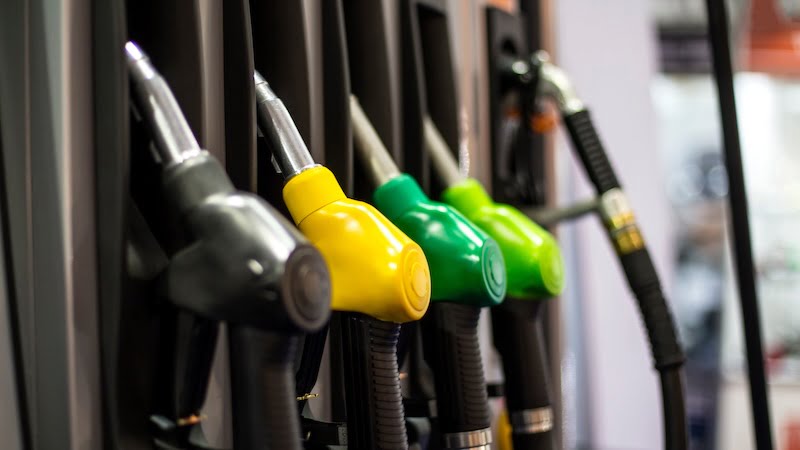
Since the end of May 2024, petrol stations in Germany have been allowed to sell the supposed eco-diesel HVO100. The problem: The fuel, which consists of fat residues and vegetable oil, is sometimes even more harmful than normal diesel. The background.
New diesel fuel: What is HVO100?
HVO stands for “hydrotreated vegetable oils”. These are renewable fuels that fall under the category of paraffinic diesel fuels. Waste materials such as old cooking fats are primarily used in production.
These vegetable oils are converted into hydrocarbons through a catalytic reaction with hydrogen. The process ensures that old cooking fats, for example, have their properties adapted to fossil diesel fuels.
If HVO also has the number 100 at petrol stations, this means that it is HVO in its pure form. It can also be mixed with diesel fuels.
Petrol pumps that offer paraffinic diesel types such as HVO100 in their pure form must also be labeled XTL. The abbreviation stands for “X To Liquid”. In concrete terms, this means that any starting material (X) is converted into a liquid energy source. This can be a variety of raw materials.
Who is allowed to fill up with HVO100?
A uniform XTL label at petrol stations and on the fuel cap is intended to ensure that drivers do not choose the wrong fuel. In order to be able to fill up with HVO100, approval is required for the respective models.
In coordination with the vehicle manufacturers, the German Automobile Trust (DAT) has published an official approval list. However, car owners should also check the information on the fuel cap and in the owner's manual.
The ADAC welcomes the introduction of HVO100 and expects the new fuel to be gradually introduced at petrol stations. It is estimated that it will be up to 20 cents more expensive than conventional diesel.
Due to its supposedly better climate balance, HVO diesel is not subject to CO2 tax. The ADAC writes: “In its pure form (HVO100), the fuel reduces the CO2 emissions of diesel vehicles by up to 90 percent compared to fossil diesel.” But is that really the case?
Is eco-diesel just a false solution?
Critics doubt that the climate impact of HVO100 is actually as positive as claimed. On the contrary: According to Deutsche Umwelthilfe (DUH), the fuel is actually a pseudo-solution that is not a success for climate protection.
The DUH, the German Nature Conservation Ring, Greenpeace, Robin Wood, Transport & Environment and the German Nature Conservation Union (NABU) have therefore published a comprehensive fact check on the occasion of the introduction of HVO100. The result: devastating.
According to the German Environmental Aid, the mass use of old frying oil, palm oil by-products or animal fats even poses a high risk of fraud. DUH Federal Managing Director Jürgen Resch commented: “A fuel for which old frying oil is transported from Asia halfway around the world to be burned in car combustion engines here is not sustainable.”
The production of HVO also requires hydrogen. In Germany, however, this is mainly obtained from fossil fuels, which puts the alleged eco-diesel into perspective. Worse still, the new fuel can even cause significant damage to the environment and climate.
How the HVO100 scam works
NABU Federal Director Leif Miller explained: “The HVO100 fuel is often advertised by the industry as a fuel based purely on waste and residues. However, a large proportion of the raw materials for so-called 'bio' fuel come from monocultures directly from the fields and thus consume land that could be used for food production.”
This is “a serious mistake that harms biodiversity, climate protection and industry and clouds the view of the actual solutions.” The risk of fraud is also enormous. Asian companies are pushing palm oil as a raw material for biodiesel in Germany and Europe, as it no longer counts towards the GHG quota.
The trail often leads to China. There, climate-damaging palm oil or HVO made from climate-damaging palm oil is simply relabeled and sold to Germany as HVO made from old cooking fats. The door is wide open for this scam. Because neither the German government nor the EU Commission are apparently interested in doing anything about it.
The reason: All EU countries have agreed to increase the share of biofuels and reduce greenhouse gas (GHG) emissions from transport. A lack of regulation has even led to fresh soy oil being sold to the EU as old cooking oil.
Although Germany has stopped allowing climate-damaging palm oil diesel to be credited in this country, palm oil mill residues in supposedly eco-fuels have increased massively. Such supposed alternatives, which are supposed to consist of residual and waste materials, are therefore a resource-wasting dead end.
Also interesting:
Source: https://www.basicthinking.de/blog/2024/05/30/alles-nur-betrug-warum-der-angebliche-oeko-diesel-hv100-nur-eine-scheinloesung-ist/


